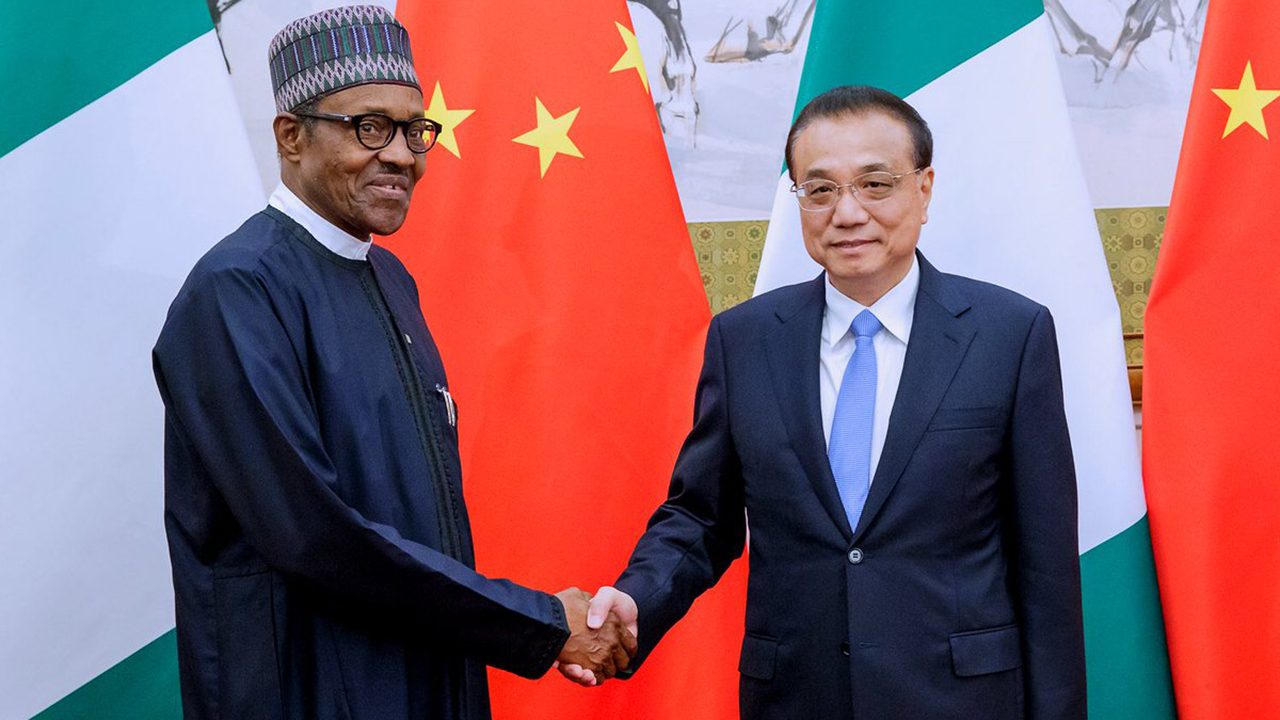
He made the request during the signing of an agreement with President Xi Jinping on the sidelines of the 74th Summit of the Forum on China-Africa Cooperation (FOCAC) in Beijing.
The Mambilla project is Nigeria’s biggest and one of Africa’s leading dam projects.
It is a projected hydro power plant, which would be connected to three dams across Taraba’s Donga River.
Conceived in 1982, the main Mambilla dam is a large rolled compact concrete dam and reservoir 1,300 metres (4,300 ft) above sea level.
Water is diverted towards the western side of the plateau through three hydraulic tunnels totaling 33 kilometres and intercepted by two smaller dams (Sum Sum and Nghu), both at an elevation of 1,250 metres (4,100 ft).
The tunnels lead into a 1,000-metre (3,300 ft) drop shaft and then to a massive underground powerhouse with a generating capacity of 3,050 megawatts (MW).
“I would like to once again solicit your support for the Mambilla hydropower project, which remains a key priority for my government.
Our hope is to fund the project with concessionary loans from China, as any alternative funding arrangement will adversely impact the project’s viability.
“We have been informed that our submission on this project is undergoing assessment by the relevant Chinese agencies.
We hope, with your kind intervention, this assessment will be expedited.
Your Excellency, Mambilla is Nigeria’s equivalent of the Three Gorges Dam.
My wish is that you join me for the groundbreaking ceremony of this project in the not too distant future,” Buhari said.
He commended the host country for its support, stating: “In the past 24 months, the Chinese government has provided humanitarian aid to our conflict areas, scholarships to Nigerian youth, military training and security support to our personnel, agriculture modernisation training, and concession army loans to fund critical infrastructural projects.
These interventions have positively impacted on millions of Nigerians and will continue to do so for generations to come.”
The Chinese leader replied: “We understand how critical the project is to your country and we will take a serious look at it and ensure that it succeeds because of its social and economic benefits.”
President Xi commended Nigeria’s fight against terrorism, promising China’s support in capacity building and intelligence sharing.
He also pledged ¥50 million in support of Nigeria’s military, noting: “Buhari is as decisive in dealing with terrorism as China.”
He said China would import more agricultural products from Nigeria and expressed gratitude to Buhari on Nigeria’s interest in participating in the forthcoming Chinese Import Fair.
“The relationship between Nigeria and China is as best as ever, especially given the deepening mutual trust.
China will continue to stand with Nigeria,” Xi added.
The two countries signed a $328m loan deal for the Information and Communication Technology Infrastructure Backbone Phase II (NICTIB II) project.
Nigeria’s Minister of Finance Kemi Adeosun and Wang Xiaotoa, Director-General, International Development Agency, signed the concessional agreement between Galaxy Backbone Limited and Huawei Technologies Limited (HUAWEI) in the presence of Buhari and Xi.
A Memorandum of Understanding for the One Belt One Road Initiative (OBOR) was also signed.
Nigeria’s Minister of Foreign Affairs Geoffrey Onyeama and He Lifeng, Director, China’s National Development and Reform Commission, signed the OBOR, an initiative of Xi, which focuses on improving connectivity and cooperation among multiple countries across Asia, Africa and Europe.
Some ICT stakeholders, however, expressed mixed feelings on the loan.
The president, Association of Telecommunications Companies of Nigeria (ATCON), Olusola Teniola, said the concern of the body’s is that “during the past administration, they also sought a $550 million Chinese loan, which was strenuously rejected by the stakeholders because it was going to be used to fund satellite alone, and we think it was just on the high side and could later impact the sector negatively.
“This loan facility that the government has signed with China didn’t even involve stakeholders’ engagement, and we are rather concerned about the details of why the Nigerian government has sought the size of loan for a network that Huawei has built for Galaxy Back Bone.
“These amounts could have been used for other investments namely the provision of broadband.
As you know, we are still yet to attain 30 per cent penetration.
This money could have been used to subsidise and expand the current fibre networks to the 774 local governments areas in the country, and that would have assisted in driving the penetration target.”
But the President of the National Association of Telecoms Subscribers of Nigeria (NATCOMS), Chief Deolu Ogunbanjo, thinks the move would strengthen the sector.
“The fact is that we need fresh investments in the ICT/Telecoms sector.
It is a way of injecting Direct Foreign Investments into the sector, to meet the 30 per cent broadband target,” he said.
A telecoms expert, Kehinde Aluko, also decried government’s penchant for borrowing.
“I am kind of worried about the increasing debt profile of this country,” he said. He stressed that a bid to develop the ICT sector is welcome “but beyond that, the loan should be judiciously utilised.”
On his part, the Director-General, Delta State Innovation Hub, Chris Uwaje, said: “Our focus should be on developing the software ecosystem and digital local content capabilities at all levels. Grants are preferred to loans.”
Priority should be given urgently to re-tooling the civil service on e-readiness by establishing a national e-government academy, “if the country must progress in the area of ICT,” he added.
[ad unit=2]



